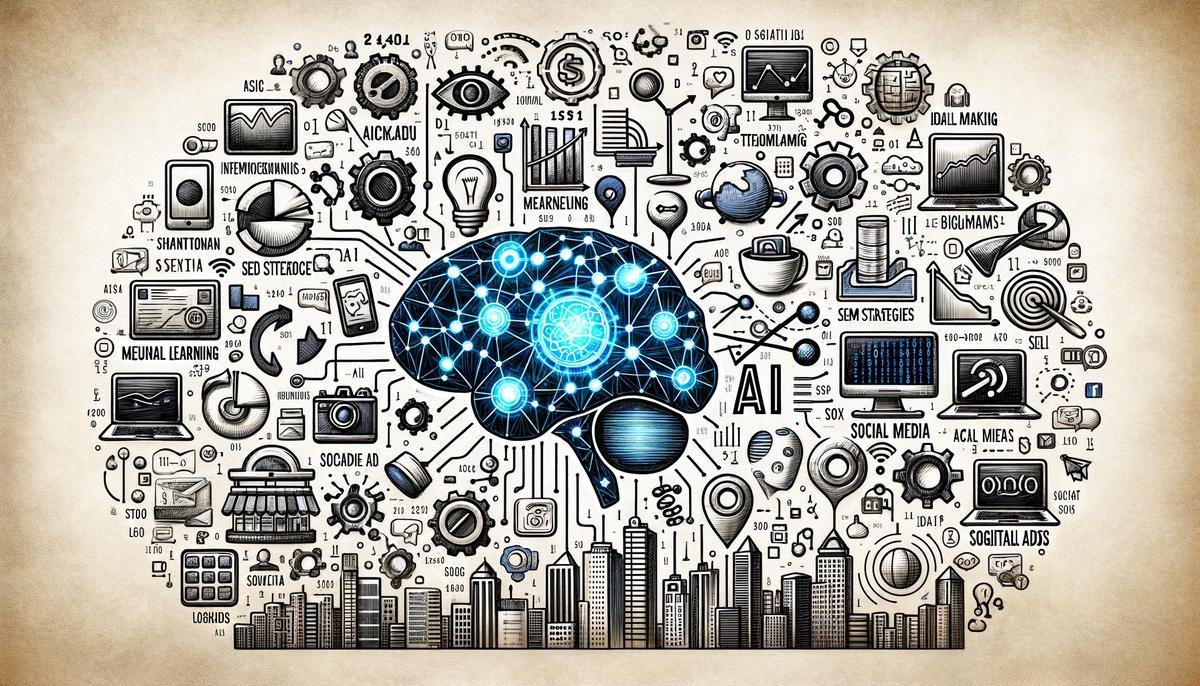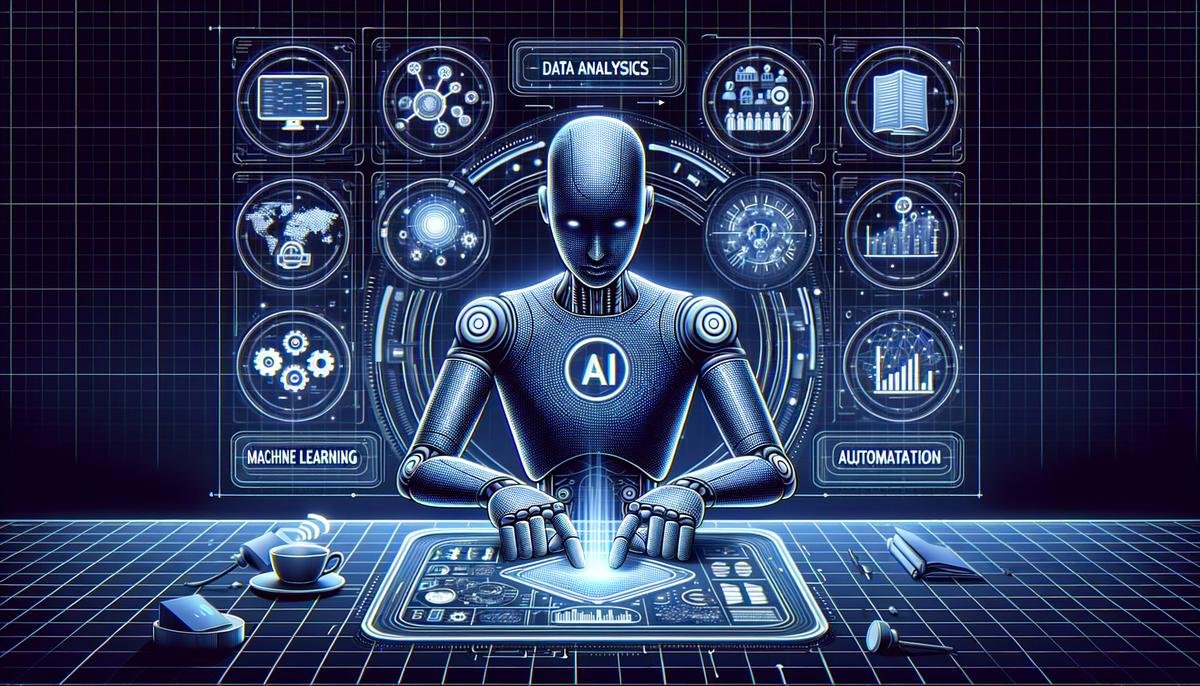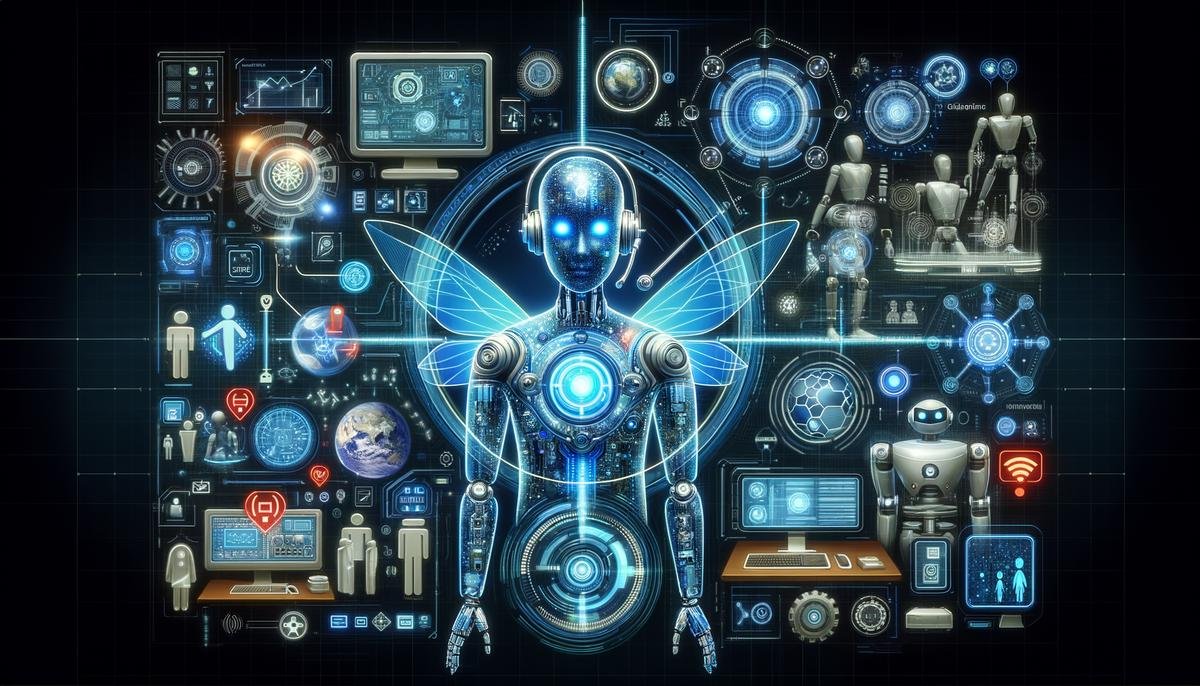HubSpot’s AI capabilities are reshaping the landscape of digital marketing, streamlining tasks, and enhancing customer experiences in ways previously unimagined. From predictive lead scoring to personalized email content, these features offer a comprehensive toolkit for businesses aiming to optimize their marketing strategies. This discussion aims to shed light on how AI integration within HubSpot not only simplifies operations but also brings a new level of personalization and efficiency to marketing efforts.
Understanding HubSpot’s AI Capabilities
HubSpot’s AI features are transforming digital marketing by making tasks more efficient and offering better customer experiences. One key feature is predictive lead scoring, which uses AI to analyze how likely a lead is to convert into a customer. This means you can focus your efforts on the leads with the highest conversion potential, saving time and increasing efficiency.
The content strategy tools provided by HubSpot are another game changer. With AI, these tools help identify the topics that will resonate most with your audience. They analyze trends and determine gaps in your content strategy, suggesting what topics to cover next. This ensures your content is always fresh and engaging, and it’s more likely to capture your target audience’s interest.
Chatbots powered by AI are capable of handling customer inquiries without any human intervention. They’re a boon to customer service, able to provide instant answers round the clock. Beyond just answering FAQs, they can guide users through complex processes, offer personalized recommendations, and escalate issues when necessary. This level of support greatly enhances the customer experience.
Email marketing gets a massive boost from AI as well, through personalized email content. Based on a user’s behavior, AI can tailor emails specifically for them, from subject lines to product recommendations. This personal touch significantly increases open rates and conversions.
Ad strategy and management also benefit from AI integration. HubSpot’s AI evaluates the performance of different ad placements and content, optimizing ad spend by reallocating budget to the most effective channels in real-time. You’re not just saving money — you’re also getting better results.
Content creation tools use AI to improve your writing by offering suggestions for optimizing SEO, readability, and user engagement. They ensure your content is primed to rank higher in search engine results pages, driving more organic traffic to your site.
AI in HubSpot allows for more personalized and timely engagement strategies, thanks to its ability to analyze vast amounts of data quickly. By understanding customer behavior patterns, businesses can craft marketing messages that hit the mark every time.
Social media management becomes simpler too. AI tools can determine the best times to post based on when your audience is most active, increasing visibility and engagement. They can even suggest content types and topics more likely to generate interaction.
Forecasting sales and marketing trends is another area where HubSpot’s AI shines. It can predict future trends based on data analysis, providing insights that allow businesses to adapt their strategies in advance.
Customer segmentation is refined with AI, enabling marketing efforts to be tailored not just to broad segments, but to individual preferences and behaviors. This level of detail in targeting maximizes the effectiveness of marketing campaigns.
In essence, HubSpot’s AI features provide a comprehensive suite of tools that automate and optimize myriad digital marketing tasks. From lead scoring and content strategy to chatbots and ad optimization, these AI capabilities streamline operations, personalize customer interactions, and deliver actionable insights for future planning. The power of AI not only saves time and resources but also enhances the customer experience, making marketing efforts more effective across the board.

Personalization at Scale with HubSpot
HubSpot’s AI enhances customer journey mapping, allowing businesses to visualize how each individual engages with their brand across multiple platforms. This capability ensures that efforts are not duplicated but complement each interaction, creating a cohesive experience for every customer. By understanding the typical paths prospects take, companies can tailor interactions to match or influence these journeys, making marketing and sales efforts more effective and personal.
Moreover, the intelligent recommendation engines built into HubSpot sift through vast amounts of data to suggest the next best action for engaging users. Whether it’s recommending a blog post, a product, or an upsell opportunity, these suggestions are based on the user’s past behavior and preferences, ensuring relevancy at every touchpoint.
Real-time analytics play a crucial role in HubSpot’s personalization capabilities. By leveraging AI, businesses get immediate insights into how their marketing strategies are performing, what’s resonating with their audience, and where adjustments are needed. This goes beyond traditional analytics by suggesting real-time adjustments to campaigns for maximum effectiveness.
The platform’s machine learning algorithms continuously learn from user interactions, making its personalization smarter over time. As users engage with content, products, or services, HubSpot’s AI notes what works and what doesn’t, refining future recommendations to increase relevance and engagement.
Automated A/B testing in HubSpot capitalizes on AI to test different variables in marketing campaigns, from email subject lines to webpage layouts. This not only removes the guesswork from optimizing conversions but also allows for granular personalization at scale by automatically tailoring content to suit various segments of the audience without manual intervention.
HubSpot’s conversational marketing tools, powered by AI, enable personalized communication with website visitors through advanced chatbots that can provide information, answer questions, and guide users through the sales funnel based on their specific needs and behaviors. These interactions are far from generic; they adjust based on who is on the site and what they’re looking for, fueled by the data HubSpot has gathered on them.
Integration capabilities of HubSpot are a significant boon for personalization. By syncing with other tools and platforms across the marketing technology stack, including CRM systems, social platforms, and analytics tools, HubSpot ensures a unified view of the customer. This seamless integration means every tool in the stack contributes data that HubSpot’s AI uses to hone its personalization efforts, ensuring that messages across channels are consistent and customized.
Finally, HubSpot leverages AI to tune its Search Engine Marketing (SEM) strategies. By analyzing keywords, user behaviors, and trends, it automatically adjusts SEM approaches to target potential customers with high precision. This not only improves the visibility of businesses online but does so in a way that speaks directly to the searchers’ intent, connecting products or services with those most likely to engage.
In summary, HubSpot employs AI across its platform to tailor marketing, sales, and service efforts to individuals at scale. From dynamic content creation to predictive analytics and advanced segmentation, these AI-driven capabilities are revolutionizing how businesses interact with their audiences, ensuring meaningful connections that drive growth.

Streamlining Sales and Marketing Alignment
HubSpot’s AI doesn’t just stop with those impressive features; it dives deeper into enhancing team collaboration and efficiency. The platform utilizes CRM analytics that tracks and analyzes customer interactions and touchpoints across the sales funnel. This level of detail means both sales and marketing can see where a potential customer is at any stage, ensuring no lead falls through the cracks.
Moreover, HubSpot offers robust reporting tools that go beyond typical analytics. Sales and marketing teams can create custom reports that focus on specific metrics relevant to their goals, allowing them to make data-driven decisions quickly. These reports include visual dashboards that can be shared across teams, fostering a culture of transparency and mutual understanding of objectives and progress.
Lead nurturing becomes a synchronized effort with HubSpot’s workflow automation. Automatically assigning leads to the right sales rep based on specific triggers or lead behavior ensures that marketing efforts lead to actionable sales pursuits. Furthermore, these workflows can automate follow-up emails from sales to leads, maintaining a warm lead pipeline cultivated by marketing campaigns.
The AI’s role in optimizing landing pages cannot be overstressed. By analyzing the performance of various landing page elements, HubSpot’s AI helps in creating pages that not only attract but also convert, aligning perfectly with the sales goals of reducing the sales cycle and increasing conversions.
Collaborative content creation becomes simpler with HubSpot’s AI insights. By identifying topics that resonate well with the target audience, both sales and marketing teams can contribute to content that’s not just informative but also persuasive, driving further alignment in messaging and objectives.
Performance tracking is revolutionized with the attribution reporting feature, pinpointing exactly which marketing efforts are resulting in sales wins. This eliminates the guesswork in determining which campaigns are effective, allowing for more strategic allocation of resources and efforts in areas that directly support sales objectives.
In sum, HubSpot’s AI capabilities bring a transformative approach to aligning sales and marketing teams. By providing tools that offer detailed insights into the customer journey, enabling efficient lead management, fostering collaborative content strategies, and ensuring data-driven decision-making, HubSpot supports a seamless pipeline that benefits from mutual effort and understanding, driving towards common goals and success.

Enhancing Customer Service with AI
HubSpot’s AI tools enhance customer service and support through its intelligent chatbots and ticketing systems by initiating swift, accurate, and highly personalized communication. AI-driven chatbots on HubSpot serve as front-line support, greeting customers instantly upon their digital arrival. These bots are capable of understanding and responding to a wide array of customer queries, making them feel heard and valued from the get-go. They effectively gather initial information, which is crucial for directing queries to the appropriate human agent or solving simple issues on the spot. This immediate interaction boosts customer satisfaction as it mirrors the attentiveness found in face-to-face encounters.
The AI chatbots are designed to learn from every interaction. This continuous learning process enables the bots to provide increasingly accurate responses over time. They can understand the context within customer questions, even when phrased differently, ensuring that users get the help they need without unnecessary repetition or clarification questions. This not only enhances the customer experience but also significantly reduces the frustration that often accompanies digital communications.
Moreover, these intelligent systems are available 24/7, making sure that businesses can offer support around the clock. This feature is especially beneficial for companies operating globally, ensuring that no customer query goes unanswered due to time zone differences. The ability of AI chatbots to provide round-the-clock assistance translates into fewer lost opportunities for engaging potential leads and nurturing existing customer relationships.
HubSpot’s ticketing system leverages AI to streamline and prioritize support requests efficiently. Once a chatbot gathers preliminary information, this system helps in categorizing, assigning, and managing tickets based on their urgency and relevance. It enables support teams to tackle high-priority and complex issues first, ensuring that resources are allocated smartly to meet customer needs effectively. The intelligent prioritization helps in minimizing wait times and improving resolution rates, contributing positively to overall customer satisfaction.
In conjunction with ticketing, HubSpot offers a bird’s eye view of the customer’s history with the brand. This comprehensive view ensures that human agents are well-informed and can offer a more personalized service. Customers feel valued when agents are aware of their previous interactions and preferences, eliminating the need to repeat themselves. This tailored approach fosters a deeper connection between customers and brands, promoting loyalty.
Through intuitive dashboards, agents using HubSpot can track and analyze the customer service process from start to finish. These insights guide continuous improvement strategies for customer service protocols. By highlighting areas needing efficiency enhancements or more human input, HubSpot allows companies to refine their customer support continuously.
The integration capabilities with other platforms ensure that all customer data — irrespective of the source — is funneled into a centralized system. This consolidation is critical for providing a unified response to customer inquiries, ensuring that regardless of how a customer reaches out (email, social media, website), the quality and personalization of the service remain consistent.
Finally, freeing up human agents from routine inquiries allows them to dedicate more time and resources to complex issues requiring a human touch. This efficient division of labor ensures that each customer interaction is managed in the most appropriate manner, boosting both efficiency and effectiveness. AI tools in HubSpot thus represent more than just technological advancement; they signify a strategic approach to enhancing customer service and support in the digital age, ensuring businesses can maintain a competitive edge by offering superior customer experiences.

Measuring Success with AI Analytics
HubSpot’s AI analytics redefine how marketers measure campaign success, offering a goldmine of insights that go beyond traditional metrics. Delving into user engagement levels, AI analytics reveal not just when and where users interact with digital marketing efforts but how they feel about those interactions. Emotion analysis tools decipher sentiment from social media comments and messages, providing a unique lens on brand perception. This emotional gauge empowers marketers to adjust tones, messages, and strategies, resonating more deeply with audiences.
Campaign effectiveness no longer hinges solely on clicks and impressions. AI-driven tools in HubSpot analyze the quality of interactions, distinguishing between casual browsers and genuinely interested users. This discernment guides more effective allocation of ad spend and resources to avenues yielding genuine interest and potential conversions.
Conversion path analysis through AI analytics illuminates the twists and turns of customer journeys. Instead of guessing which touchpoints contribute most to conversions, marketers receive a data-backed storyboard of each step’s influence. Understanding these pivotal moments enables refinement of campaigns to guide more prospects along the path to becoming customers.
In multi-channel marketing strategies, attribution models can be complex. HubSpot’s AI simplifies this by allocating credit accurately among all touchpoints in a customer’s journey. Marketers gain a clear picture of each channel’s ROI, allowing for strategic investment in the most impactful channels.
Predictive analytics push boundaries further by not just evaluating past and present campaigns but forecasting future trends. HubSpot’s AI tools analyze current data to predict upcoming shifts in consumer behavior or market conditions. Marketers armed with these insights can preemptively adjust campaigns for continued relevance and effectiveness.
Content optimization extends beyond SEO, with AI analyzing user engagement and content performance in real time. This real-time feedback loop allows for the dynamic tweaking of content strategies to meet evolving user preferences, keeping materials fresh and engaging.
Email marketing campaigns are supercharged with AI’s ability to segment audiences not just by demographics but by predicted behaviors and preferences. Tailoring messages based on AI predictions increases relevance and engagement, driving higher open and conversion rates.
Lastly, ROI measurement benefits greatly from HubSpot’s AI analytics. By connecting campaign efforts directly to sales outcomes and customer lifetime value, marketers have a comprehensive view of effectiveness. This connection between marketing initiatives and financial results validates strategies and campaigns with concrete data, completing the loop of data-driven decision-making.

In conclusion, the cornerstone of HubSpot’s AI capabilities lies in their ability to personalize marketing at scale. This singular advantage stands out as the most impactful, transforming how businesses connect with their audiences. By leveraging AI for tailored interactions, companies can significantly improve engagement and conversion rates, ensuring that their marketing efforts are not just seen but felt. The power of personalization through AI is what sets HubSpot apart, making it an invaluable asset in the digital marketing toolkit.



